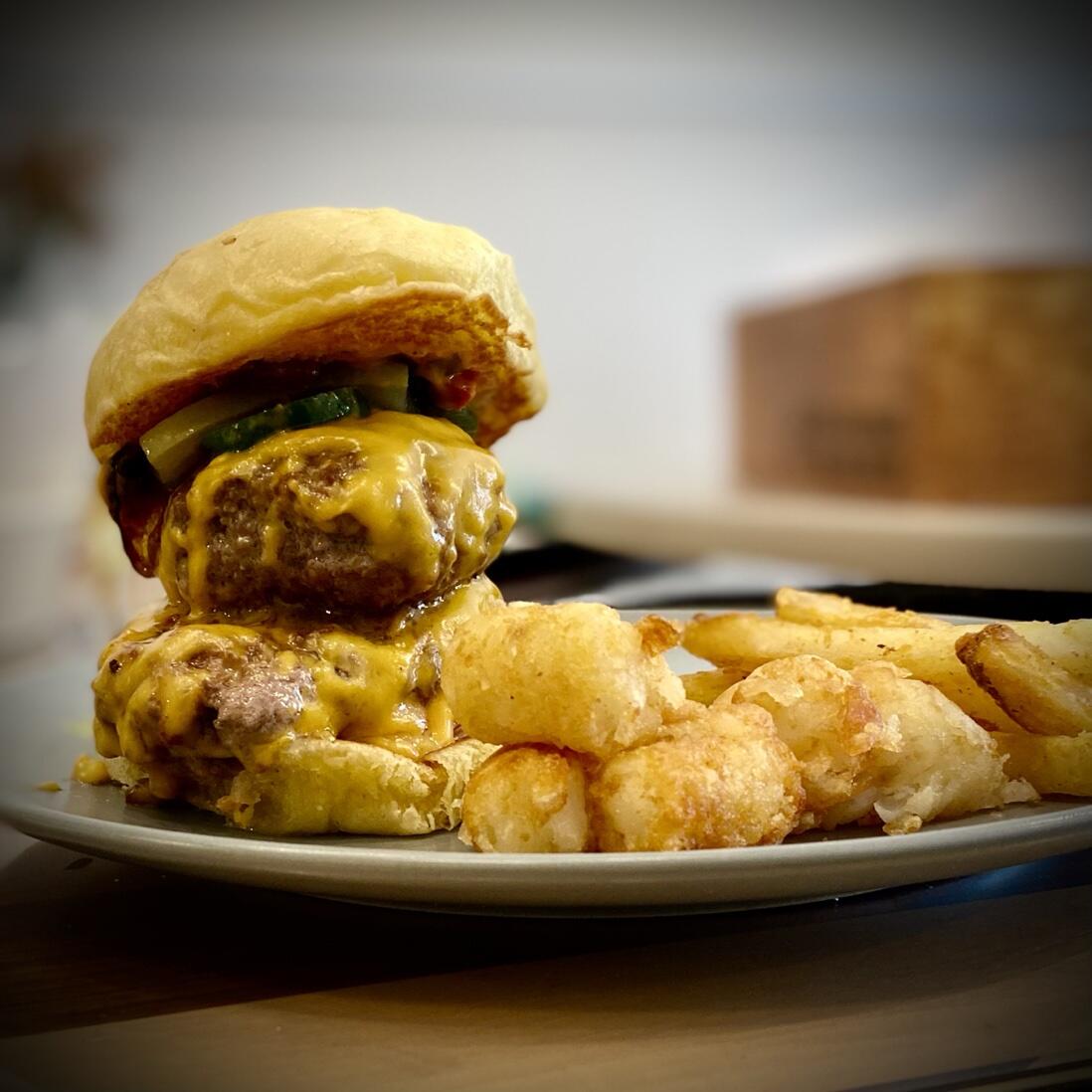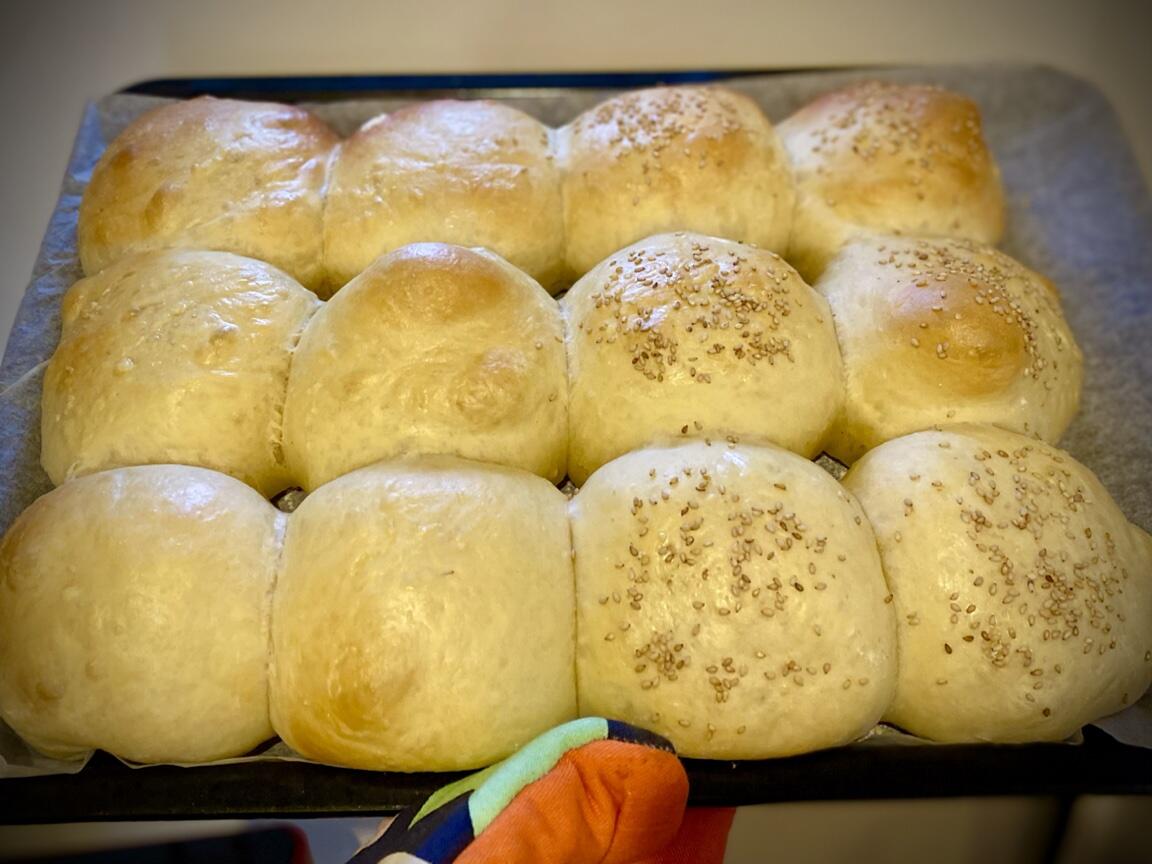Event JSON
{
"id": "43b7660f418ff0cc33bc67d6a498a26c2ce115e79fcec0b92b017d3706d34d7c",
"pubkey": "048ecb14dd6079427d0e250ec3cc3a20eb2bb5f3cb8b99e3e4d3b8247c28ac78",
"created_at": 1722219612,
"kind": 30023,
"tags": [
[
"d",
"burger-buns/rolls-(soft)"
],
[
"title",
"Burger Buns/Rolls (Soft)"
],
[
"t",
"nostrcooking"
],
[
"t",
"nostrcooking-burger-buns/rolls-(soft)"
],
[
"summary",
"Soft, bread buns for hamburgers or other sandwiches"
],
[
"image",
"https://image.nostr.build/f69a91b11f2030231bcfe6e9ca889d351f7f351809da659eb3ca06c3d7415dcc.jpg"
],
[
"t",
"nostrcooking-dough"
],
[
"t",
"nostrcooking-bread"
]
],
"content": "\n## Chef's notes\n\n* Makes 6 buns\n* Can be cold fermented over night - do what works for your schedule (for a night event, start in the morning ; for a lunch event, prep the night before and cold ferment).\n* Based on a [recipe by the ChainBaker](https://www.chainbaker.com/yudane-buns/) (whose recipes and [YouTube](https://www.youtube.com/c/ChainBaker/videos) I highly recommend).\n* This recipe uses a softening technique called Yudane which involves prepping flour + boiling water in advance to making the dough.\n* Work with the dough in a cool environment \u003c 24°C (75°F) so that the dough is not too sticky. When it's really sticky, I just use a Slap and Fold kneading method.\n\n\n\n## Details\n\n- ⏲️ Prep time: 6-7 hr (start to finish)\n- 🍳 Cook time: 25\n- 🍽️ Servings: 3 (2 rolls/person)\n\n## Ingredients\n\n- Flour 300g (50g for yudane + 250g for main dough)\n- Boiling Water 50ml\n- Milk 150ml\n- Dry Active/Instant Yeast 4g\n- White Sugar 20g (can be reduced)\n- Salt 6g\n- Butter (softened) 20g\n- Egg Yolk 1\n- [glaze] Egg White 1\n- [glaze] Sesame seeds\n\n\n## Directions\n\n1. [Yudane] Pour 50ml of boiling water over 50g of flour while mixing. Put in fridge to cool for 1.5 hours.\n2. Take butter out of fridge and leave to soften\n3. In a big bowl add the yeast, salt, sugar, egg yolk. Pour in the cold milk and mix so that the granules can hydrate/dissolve\n4. Add the cooled yudane from the fridge and mix.\n5. Add in the rest of the flour and mix. Leave to hydrate for 15mins.\n6. Scrape the dough out onto a cold surface for kneading. It will be quite wet (especially in a warm environment). Knead for 5-6 minutes, possibly using the slap and fold method due to stickiness.\n7. Add the butter, and knead for another couple of minutes so that it is well incorporated.\n8. Collect the dough (it's okay if it's still sticky and difficult and not a pretty ball) and move back into the bowl. Cover with plastic wrap.\n9. If baking same day, leave for 2-2.5 hours to proof/ferment at room temperature (~24-26°C/75-78°F). Adjust the time for higher/lower temps. If baking the next day, put the bowl in the fridge overnight.\n10. After the bulk proofing time is up, prep a scale and weigh the dough. Calculate what each dough ball should be (this recipe makes 6 balls).\n11. Slice the dough into pieces weighing the right amount for each ball. I find this is usually around 85g, but depends on factors like how much dough was lost in moving / evaporation etc. so weighing is important.\n12. Frequently dust the working area with flour so the balls don't stick. For each ball, loosely fold the edges of the dough into the center, flip it over and let it rest for 10-20 minutes.\n13. Once again flip each ball over and fold the edges again inward. A little tighter/cleaner this time. Flip so the folds are down, and gentle roll the dough in a circular fashion with a cupped hand so that it becomes a ball. You can also try to create some tension at the top of the ball if you know how.\n14. Prepare the tray you'll bake the buns in, lining the bottom with a cooking sheet.\n15. Line up the balls on the tray with a little space between (they'll grow) and place plastic wrap over them so they don't dry out, dusting the tops and side with just a little flour so the film doesn't stick.\n16. Leave the balls to proof/rise for 2 hours.\n17. Pre-heat the oven to 160°C/320°F.\n18. While waiting for the over to heat up, use the leftover egg whites to brush over the buns. Then sprinkle sesame seeds over the top.\n",
"sig": "81897a484b5bbf284bcbc050dee3c9aba765936caaad82656892fc69bef0f7f1489b38c5a9ae2d74d408db6b745152f66f9212c7d65b19eece8f2185e5561a48"
}


